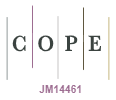The school without party movement in question: teaching narratives
DOI:
https://doi.org/10.5585/eccos.n60.15784Keywords:
indoctrination, ideology, school without party movement, teachers’ narrativesAbstract
The School without Party Movement is a topic that became the object of our research in 2018, when it gained great repercussion in the field of education, by both: those who defended the proposal and those who rejected it. In this paper, we present reflections based on the study carried out that year that aimed to know the trajectory of basic education teachers and the way they dealt with the issues raised by this Movement. To this end, narrative interviews were carried out with five teachers. In these interviews, teachers talked about their professional trajectory, as well as analyzed the School without Party Movement. The study also aimed to understand the trajectory of this Movement and its arguments. The determination of the Movement that “the teacher will respect the right of parents to have their children receive a moral education that is in accordance with their own convictions” raises questions about how to deal with the diversity of convictions and conceptions that may coexist in a classroom. As the research listened to the teachers, characters directly involved in this proposal, we gathered data that contributed to broaden the ways of understanding this movement, from the teachers’ point of view. Based on Paulo Freire’s studies, we discuss the meanings of neutrality and the meaning of moral education implicit in the proposal, as well as analyze the risks of fanaticism and sectarianism that this Movement can entail.
Downloads
References
AGOSTINI, Nilo. Os desafios da educação a partir de Paulo Freire e Walter Benjamin. Petrópolis: Vozes, 2019.
FREIRE, Paulo. Educação como prática da liberdade. 36ª edição. Rio de Janeiro; São Paulo: Paz e Terra, 2014a.
FREIRE, Paulo. Pedagogia do oprimido. 57ª edição. Rio de Janeiro; São Paulo: Paz e Terra, 2014b.
FREIRE, Paulo. Pedagogia da autonomia: saberes necessários à prática educativa. 24ª edição. Rio de Janeiro; São Paulo: Paz e Terra, 1996.
FREIRE, Paulo. Pedagogia do oprimido. Rio de Janeiro; São Paulo: Paz e Terra, 1987.
JOVCHELOVITCH, Sandra; BAUER, Martin W. Entrevista narrativa. In: BAUER, Martin W.; GASKELL, George (Orgs.). Pesquisa qualitativa com texto, imagem e som. Um manual prático. Petrópolis: Vozes, 2002. p. 90-113.
MEHANNA, Adla. Desenvolvimento de valores morais, éticos e científicos na educação. Programa de Desenvolvimento Educacional–PDE. Núcleo Regional de Educação. Curitiba: UFPR, 2008. Disponível em: http://www.diaadiaeducacao.pr.gov.br/portals/pde/arquivos/512-4.pdf. Acesso em: 08 mar. 2022.
NICOLAZZI, Fernando. Qual o partido da escola sem partido? Revista do lhiste, Porto Alegre, v. 3, n. 5, p. 82-85, jul/dez., 2016.
SANDRINI, Laura. Narrativas docentes: o movimento escola sem partido em questão. Orientador: Nilo Agostini. 2019. 70f. TCC. Curso de Pedagogia, Universidade São Francisco, Itatiba, 2019.
SCHRAM, Sandra Cristina; CARVALHO, Marco Antonio Batista. O pensar educação em Paulo Freire - Para uma Pedagogia de mudanças, 2007. Disponível em: http://www.diaadiaeducacao.pr.gov.br/portals/pde/arquivos/852-2. Acesso em: 08 mar. 2022.
ZAN, Dirce; MAZZA, Débora. Escola sem Partido? É possível? Jornal da Unicamp – Edição web. 05 dez. 2018. Disponível em: http://www.unicamp.br/unicamp/ju/artigos/educacao/escola-sem-partido-e-possivel. Acesso em: 08 dez. 2018.
Downloads
Published
How to Cite
Issue
Section
License
Copyright (c) 2022 EccoS - Revista Científica

This work is licensed under a Creative Commons Attribution-NonCommercial-ShareAlike 4.0 International License.






